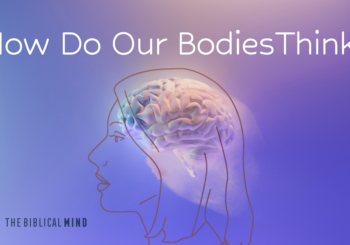Call for Proposals: Course Development Grants
Topic: Hebraic Thought and the Intellectual World of the Bible
The Center for Hebraic Thought (CHT) is offering two grants up to $4,000 each for the equivalent of a three-credit university course/module offered in your home institution for the 2020-21 academic year. The course may be undergraduate or graduate (US)/post-graduate (UK).
Deadline:
Applications received by March 16, 2020 will be given priority in the review process.
Eligibility:
Full-time professors (equivalent to the US ranks of assistant, associate, or full professor) at a regionally accredited college, seminary, or university may apply.
Amount:
A development grant of up to $4,000 will be paid to the instructor of record. The grant also requires a post-semester workshop at The King’s College in New York City. The CHT will cover flight, hotel, and meals for traveling to NYC.
Description:
This grant aims to increase the study of biblical literature as an intellectual tradition and put Christian Scripture (both the HB/OT and the NT) in conversation with various philosophies and philosophical traditions. Applications that engage both the Bible as a primary source and works of conceptual analysis within the biblical texts will be considered more seriously (see list below). Additionally, applicants should feel free to include essays and books not listed below, especially if there are any plans to publish as a result of the course development. Successful applicants can expect to receive advice on course planning if needed from CHT personnel or fellows. See our website for other scholarly resources: hebraicthought.org/.
Apply:
A complete application should include:
- Name, position, brief biography, and institution of the applicant/s.
- Number of students expected and the semester/year of the term and how this course fulfills institutional and program requirements.
- Please indicate if this a team-taught course or a compressed schedule course (e.g., 8-week semester).
- A proposed syllabus that includes the course level, title, description, outcomes, dates of classroom meetings, possible skype/guest lecturers, assignments, and required/suggested readings.
- An endorsement of the application by the department chair, provost, or whomever approves class scheduling.
Applications and inquiries can be sent to djohnson@tkc.edu.
Scholarship on the Conceptual World of the Bible
Many other articles and volumes could be added, but these give the applicant a notion of the kinds of philosophical analyses of Scripture we aim to foster through this grant.
- Joshua Berman
- Created Equal (Oxford University Press, 2009).
- Inconsistencies in the Torah (Oxford University Press, 2018).
- Michael Carasik, Theologies of the Mind in Biblical Israel (Peter Lang, 2006).
- James Diamond, Jewish Theology Unbound (Oxford University Press, 2018).
- Henri Frankfort, et al., The Intellectual Adventure of Ancient Man (University of Chicago)
- Jaco Gericke,
- The Hebrew Bible and Philosophy of Religion (SBL Press, 2012).
- “Is There Philosophy in the Hebrew Bible? Some Recent Affirmative Perspectives,” Journal for Semitics 23/2 (Jan 2014): 583 – 598.
- A Philosophical Theology of the Old Testament: A Historical, Experimental, Comparative and Analytic Perspective (Routledge, 2020)
- Lenn Goodman, God of Abraham (Oxford, 1996).
- Moshe Halbertal and Stephen Holmes, The Beginning of Politics: Power in the Biblical Book of Samuel (Princeton University Press, 2017)
- Yoram Hazony
- Philosophy of Hebrew Scripture (Cambridge University Press, 2012).
- God and the Politics of Esther (Cambridge University Press, 2015).
- Mary Healey and Robin Parry, eds., The Bible and Epistemology (Paternoster, 2007).
- Dru Johnson
- Biblical Knowing (Cascade, 2013).
- Knowledge by Ritual (Eisenbrauns, Penn State Press, 2016).
- Epistemology and Biblical Theology (Routledge, 2017).
- The Question of God’s Perfection, edited with Yoram Hazony (Brill, 2018).
- Ryan O’Dowd, The Wisdom of Torah (V&R, 2009).
- Eleonore Stump, Wandering in Darkness (Oxford, 2010).
- Jeremiah Unterman, Justice for All (JPS/University of Nebraska Press, 2016).
- Shira Weiss, Ethical Ambiguity in the Hebrew Bible (Cambridge University Press, 2018).





